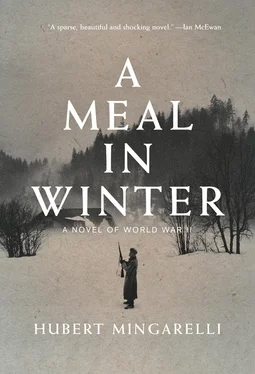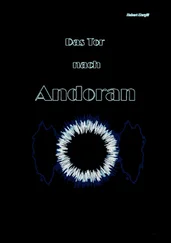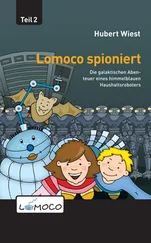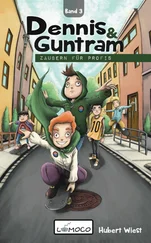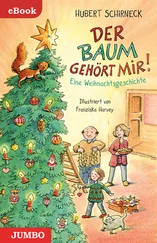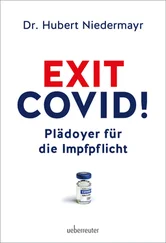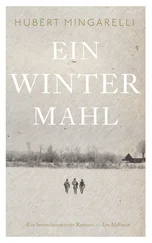We burned our tongues and palates. We were happy, but not for long, because the Pole suddenly stopped eating in that strange way he had — like an old woman, with his missing teeth — and his eyes turned to slits as his mouth was deformed by a fierce grin. We stopped eating too, and watched him.
From where he stood, he was facing the storeroom. The Jew was dozing, sitting on his coat. The Pole spoke a few words, not very loud, but we understood that they were addressed to the Jew, and that they were filled with satisfaction and contempt. It was a strange kind of curse.
‘Don’t start that again,’ Bauer told him.
The Pole shut up, but lifted his steaming mug towards the storeroom as his face split once again into that vile grin. It was probably that smile that caused Bauer to decide on something that Emmerich and I had never considered — because we were not Bauer, and also, I guess, because we’d drunk a lot less potato alcohol than he had.
So he looked scornfully at the Pole for a moment and then, without saying anything, turned towards the storeroom. ‘Come over here,’ he called.
The Jew lifted his head and looked over at us.
‘Get up, come over here,’ said Bauer, indicating the free side of the table, facing the Pole.
‘What are you doing? What for?’ I asked, although I had understood.
Bauer shot me a look. Then, ignoring me, he touched the saucepan handle and called out in a loud voice: ‘Come and eat. Go on, get up and come over here.’
‘No,’ I said. ‘Stop. Leave him where he is.’
‘Why?’ Bauer asked, as the Jew slowly, hesitantly stood up.
Once he was on his feet, he bent down to pick up his coat, but Bauer signalled that he should leave it there. Then he made another hand gesture to say he should come out of the storeroom.
‘No, Bauer,’ I repeated. ‘Leave him where he is.’
Again, Bauer asked, ‘Why?’
I didn’t reply. What was the point? He knew the answer. He knew the risk we were taking with our morale by inviting him to eat with us.
In early autumn, two Jews — two brothers, we thought — used to do our laundry. They soaped it, put it in hot water in a bathtub outside, and then hung it out to dry. Sometimes we walked past them. Sometimes we watched them work. One day, after watching them for a while, we’d talked to them about the way they rinsed the clothes. We thought it wasn’t good. It seemed to us that we could still see the soap in the hanging clothes. It was almost enough to make us itch. They tried to understand what we wanted, though I’m not sure they succeeded. But, as they’d made the effort, we slipped each of them a cigarette. And after that, they folded our clothes first, even our underwear, and brought them to our beds in the gymnasium. If we were there when they did that, we would slip them each another cigarette. And instead of smoking a whole one each, they cut them in two so they could have two smokes during the day.
Except that, when their turn came, we remembered them. For the whole of October, it had been their hands that washed and folded our laundry, and our cigarettes that they smoked. And, unfortunately for them, and for us, among the hundred or so soldiers who were there that day, it was in front of Bauer and me that they lay down, on their stomachs, in the clearing. Bauer and I wanted to change places with other soldiers, but as we hesitated, wondering how to do it, the others next to us had already fired. So we had no choice: we shot our laundrymen. And just before we pulled the trigger, one of them had thrown us a look full of sadness — because he was going to die, of course, but also, so it seemed to us, because we were the ones who were killing him.
Bauer and I felt depressed that day. More than usual, I mean. And it was a different, particular kind of depression. In the evening, we talked about it, outside. The weather was good. Emmerich helped us. We understood that the solution was simple: with the new laundrymen, we would not look at them or talk to them. We wouldn’t do anything with them that had anything to do with life.
Bauer had asked me why the Jew should stay in the storeroom. But he knew the answer, you see. He’d known it since October.
The Jew was now almost out of the storeroom. He took another step forward and stopped in the doorway. He waited there as if on the threshold of a house. Bauer signalled to him to keep going. So he came out of the storeroom and moved towards the table. A vein was throbbing on his temple. The side of his mouth was quivering. He didn’t know what to do with his hands. He put them behind his back, then brought them back in front and crossed them. His gaze never wavered. And yet he managed not to look at anyone. He stared at a point on the wall, close to the window. Just beneath his hat, his vein was still throbbing.
The Pole, standing up in front of him, starting drumming his spoon nervously on the table. Rage was shining in his eyes.
‘Shut your face,’ Bauer told him. ‘Eat. Get stuck in. It’ll choke you later, you’ll see.’
The Pole stopped drumming, put his hands on the table, leaned towards Bauer, and spoke to him in a voice full of suppressed rage, drawing back his lips, not like a dead fish any more, but like an animal. And he leaned ever closer to Bauer, looking as if he wanted to rip his heart out. He was so enraged with Bauer that I looked over at our rifles. Bauer didn’t seem bothered, though. He listened seriously, attentively, as though the Pole was confiding in him.
Suddenly the Pole stood up and looked away from Bauer, his rage replaced by laughter as he pointed his spoon at the Jew, who was still staring towards the window. There was not even a shadow of good cheer in that laugh. I noticed his dog, which had been lying next to the stove, now sat up.
Then, as the Pole gradually stopped laughing, I leaned towards Bauer and Emmerich. ‘Let’s chuck him outside. I’ve had enough of this.’
‘Me too,’ said Emmerich. ‘I’m hungry.’
‘No,’ Bauer said happily, ‘he’s going to pay for his soup. He’s going to eat with a Jew. He’ll remember that.’
But I really had had enough of all this, and of Bauer too, a little. So I pointed at the Jew and said coldly, ‘We’re going to pay for it too. We won’t be able to kill him after this.’
What I meant was that, if we had to do it, it would be hard. Bauer asked me, ‘Why?’
‘Remember the autumn?’ I said. ‘How depressed we got over our laundrymen.’
‘The autumn was a long time ago.’
And then, with a hand gesture, he erased something in the air, and said, ‘Anyway, who’ll do that? Not us. We’re bringing one back. So tomorrow, it’s certain, Graaf will let us go out again. We’ll come back here.’
‘Maybe,’ I said, a little doubtfully. ‘We’ll see.’
But really, he was right. I chased away a fear: that Graaf would prevent us leaving anyway, just for the pleasure of it. So I didn’t argue any more, mainly because I was hungry and I wanted to feel happy again, the way we’d felt when we started to eat, a little earlier.
Emmerich felt the same way. He pushed his mug in front of the Jew and pulled the saucepan a bit closer to him so he could share it with Bauer.
The Jew stopped looking at the point on the wall and turned his gaze to Emmerich’s mug. His hands, still crossed in front of him, started to move. He pursed his lips. His face relaxed. The embroidered snowflake on his hat was half-concealed in a fold. But I could still see part of it. I wanted to eat in peace. I signalled to him to take off his hat. He took it off and put it in his pocket, and now, without his hat, with his hair falling around his face, we could see even more clearly how young he was.
We didn’t hear any more from the Pole. Hunger had swallowed up his laughter. He waited, spoon in hand, motionless apart from his eyes. His dog was lying down again next to the stove. It was licking the puddle of water made by the snow sleighbells when they melted.
Читать дальше
